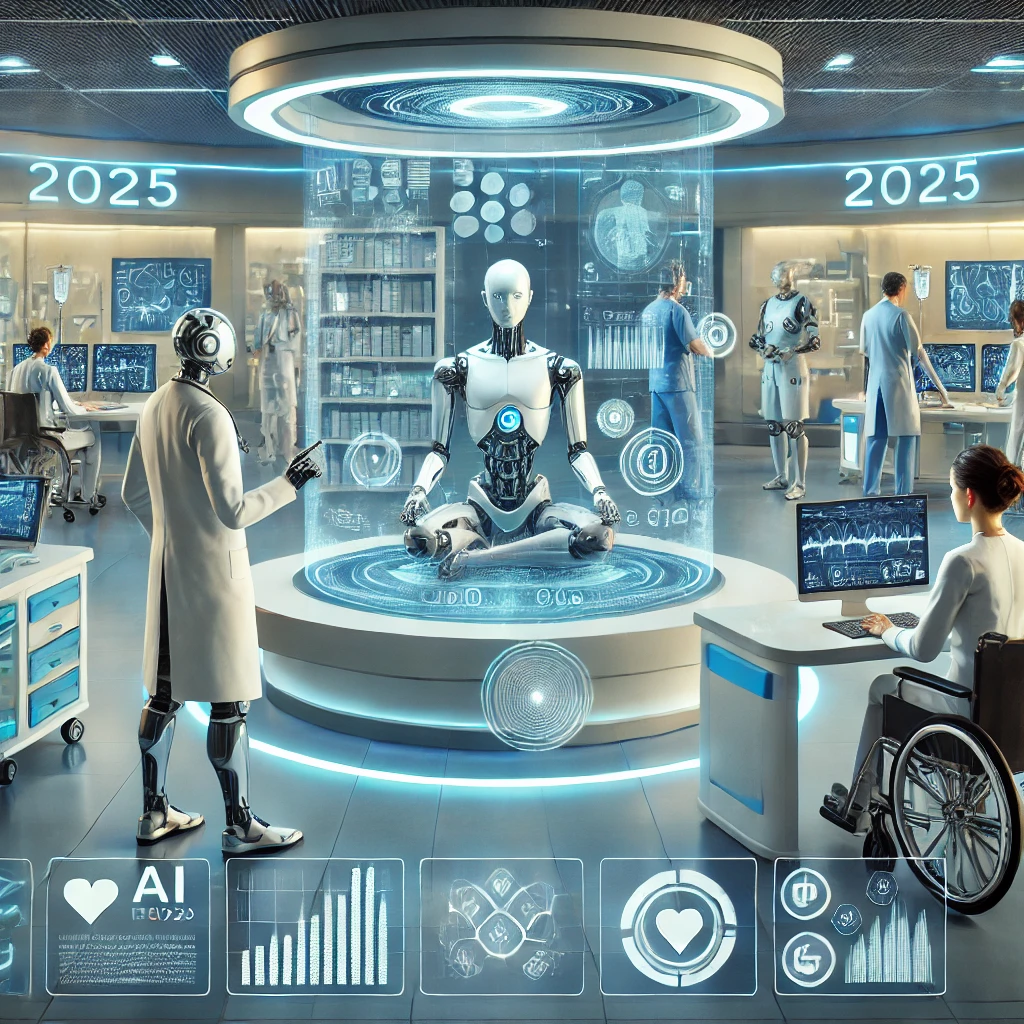Health is an ever-evolving field, influenced by technology, lifestyle changes, medical advancements, and global events. In 2025, several key trends are shaping the way individuals and societies approach well-being. This article explores the current state of health, emerging challenges, and potential solutions to ensure a healthier future.
1. Digital Health and Telemedicine
One of the most significant changes in healthcare in recent years is the rise of digital health solutions and telemedicine. The COVID-19 pandemic accelerated the adoption of virtual healthcare, and by 2025, it has become an integral part of the medical industry.
- Teleconsultations: Patients can now consult doctors from the comfort of their homes, reducing the need for hospital visits.
- AI and Machine Learning in Diagnostics: Artificial intelligence helps doctors analyze medical data faster and more accurately, improving early diagnosis rates.
- Wearable Health Tech: Devices like smartwatches and fitness trackers monitor heart rate, sleep, blood pressure, and even glucose levels, helping individuals manage their health proactively.
Challenges in Digital Health
While digital health has many benefits, there are concerns about data privacy, accessibility, and the potential for misdiagnosis. Ensuring secure digital platforms and proper regulation remains a priority.
2. Mental Health Awareness and Solutions
Mental health has gained significant attention in recent years, and in 2025, it remains a major health concern. Stress, anxiety, and depression are on the rise due to work pressures, social media influence, and economic instability.
- Workplace Mental Health Programs: Companies are investing in employee well-being through counseling services, flexible work hours, and mental health days.
- Mindfulness and Meditation: Apps and programs that promote mindfulness are becoming more popular, helping individuals manage stress effectively.
- Accessible Therapy Services: Teletherapy and online counseling services have made mental health support more accessible to a broader audience.
Challenges in Mental Health
Despite increasing awareness, mental health stigma persists. Many individuals still hesitate to seek professional help. Addressing this requires continuous education and supportive policies.
3. The Fight Against Chronic Diseases
Chronic diseases such as diabetes, heart disease, and obesity continue to be leading health concerns worldwide. Lifestyle changes, poor diet, and lack of exercise contribute to the rising prevalence of these conditions.
- Nutritional Awareness: More people are turning to plant-based diets, organic food, and personalized nutrition plans.
- Fitness Revolution: Home workouts, virtual trainers, and AI-driven fitness plans help people maintain an active lifestyle.
- Medical Breakthroughs: New treatments, including gene therapy and personalized medicine, are providing better outcomes for chronic disease patients.
Challenges in Managing Chronic Diseases
Despite advancements, the cost of treatment remains high. Governments and healthcare organizations need to invest in affordable healthcare solutions and preventive measures to reduce the burden of chronic illnesses.
4. The Impact of Climate Change on Health
Climate change is increasingly affecting public health. Rising temperatures, air pollution, and extreme weather events contribute to respiratory diseases, allergies, and mental stress.
- Air Quality Monitoring: Cities are implementing better air quality monitoring and control measures to reduce pollution-related illnesses.
- Heat-Related Illness Prevention: Governments are focusing on creating heatwave preparedness plans to protect vulnerable populations.
- Eco-Friendly Healthcare: Hospitals are adopting green practices, such as using renewable energy and reducing medical waste.
Challenges of Climate-Related Health Issues
Many countries lack resources to tackle climate-related health problems effectively. International cooperation and sustainable practices are essential to mitigate these health risks.
5. The Role of Personalized Medicine
Personalized medicine is transforming the way diseases are diagnosed and treated. Instead of a one-size-fits-all approach, treatments are tailored to an individual’s genetic makeup and lifestyle.
- Genetic Testing: DNA analysis helps identify potential health risks early, allowing for preventive measures.
- Customized Drug Therapies: Patients receive medications specifically designed for their genetic profiles, improving treatment effectiveness.
- AI in Treatment Planning: AI-driven insights help doctors create personalized health plans for better outcomes.
Challenges in Personalized Medicine
While promising, personalized medicine is expensive and not yet widely available. Making these advanced treatments more accessible will be a key focus in the coming years.
6. Public Health Initiatives and Preventive Care
Governments and organizations are emphasizing preventive healthcare to reduce disease burdens and healthcare costs.
- Vaccination Programs: Continued efforts to promote vaccinations help prevent outbreaks of infectious diseases.
- Healthy Lifestyle Campaigns: Awareness programs encourage individuals to adopt healthier habits, such as regular exercise and balanced diets.
- Community Health Services: Free health screenings, educational programs, and community health workers play a crucial role in early disease detection.
Challenges in Public Health
Misinformation and vaccine hesitancy remain significant hurdles. Strengthening public trust in health initiatives through education and transparency is vital.
7. The Future of Healthcare: What Lies Ahead?
The future of healthcare in 2025 and beyond looks promising, with continued technological advancements and improved public health policies. Some key areas to watch include:
- AI-Driven Drug Discovery: Faster and more efficient drug development to combat diseases like cancer and Alzheimer’s.
- Robotics in Surgery: Enhanced precision and reduced recovery times with robotic-assisted surgeries.
- Universal Healthcare Access: Efforts to make healthcare affordable and accessible to all, regardless of socio-economic status.
Conclusion
Health in 2025 is a dynamic field, influenced by technological innovations, public awareness, and global challenges. While there are many improvements in digital health, mental well-being, and disease management, challenges such as affordability, misinformation, and environmental factors persist. By focusing on prevention, personalized medicine, and sustainable healthcare practices, we can create a healthier future for all.






